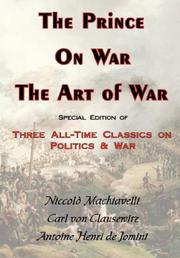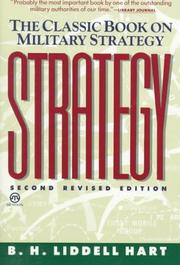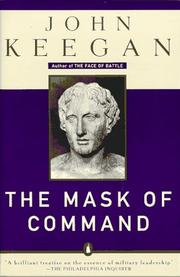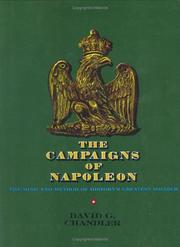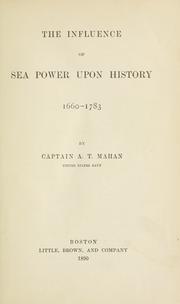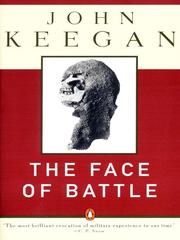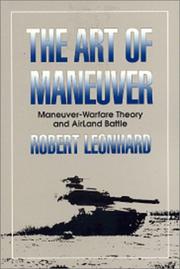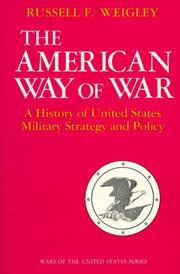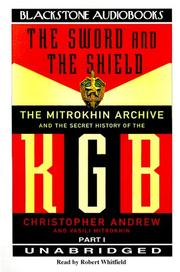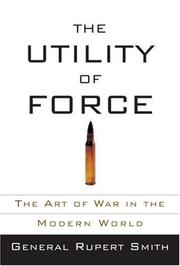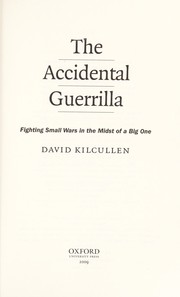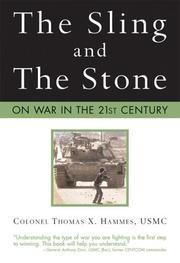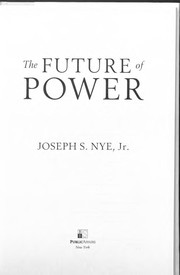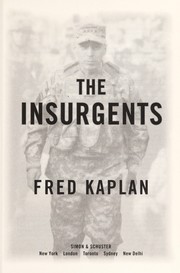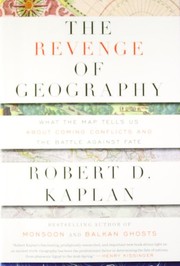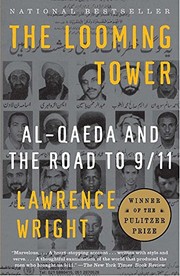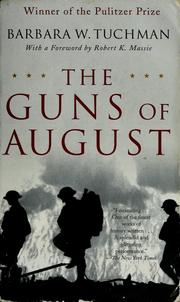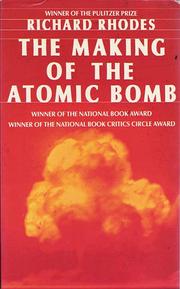Are you fascinated by the art of warfare and the strategies behind military victories? Look no further than this curated list of the 20 best books about military strategy. Whether you’re a history buff, a military enthusiast, or a strategic thinker, these books offer invaluable insights into the minds of great military leaders and the tactics that shaped the course of history. From classic texts to modern analyses, dive into the world of military strategy with these essential reads.
Contents
- 1 20 Best Books About Military Strategy
- 2 The Art of War
- 3 On War
- 4 The Strategy of Indirect Approach
- 5 The Mask of Command
- 6 The Campaigns of Napoleon
- 7 The Influence of Sea Power Upon History
- 8 The Face of Battle
- 9 The Art of Maneuver
- 10 The American Way of War
- 11 The Sword and the Shield
- 12 The Utility of Force
- 13 The Accidental Guerrilla
- 14 The Sling and the Stone
- 15 The Future of Power
- 16 The Insurgents
- 17 The Revenge of Geography
- 18 The Looming Tower
- 19 The Guns of August
- 20 The Making of the Atomic Bomb
- 21 The Campaigns of Alexander
- 22 Conclusion
- 23
- 24 Assassins Fiction Books: A Curated 2024 Updated List
- 25 Books about Secret Love Affairs: 2024 Updated Guide to Essential Reading
- 26 20 Adulthood Best Books to Read – The 2024 Edition
20 Best Books About Military Strategy
The Art of War
by Sun Tzu
The Art of War by Sun Tzu is a classic book on military strategy that has withstood the test of time. Written over 2,500 years ago in ancient China, it offers timeless wisdom on how to achieve victory in warfare. However, its principles have been applied beyond the battlefield, making it a valuable resource for business leaders, sports coaches, and anyone seeking to navigate strategic challenges. Sun Tzu’s insights on deception, positioning, and the importance of understanding the enemy’s weaknesses continue to be relevant in today’s competitive world. This book about military strategy is a concise and powerful guide that has influenced countless leaders and thinkers throughout history. Its enduring popularity and impact make it a must-read for anyone interested in the art of strategy and leadership.
On War
by Carl von Clausewitz
On War, written by Carl von Clausewitz, is a seminal book on military strategy that explores the complex nature of warfare. Originally published in 1832, this renowned work delves into the political, social, and psychological aspects of war, making it a timeless and essential read for military leaders, historians, and scholars alike. The book delves into the dynamic nature of conflict, emphasizing the importance of understanding the enemy, adapting to changing circumstances, and the role of chance in warfare. Clausewitz’s insightful analysis of war has had a profound influence on military strategy, shaping the way warfare is studied and approached to this day. In this groundbreaking text, readers will gain a deeper understanding of the intricacies of warfare and the strategic thinking required to navigate the complexities of conflict.
The Strategy of Indirect Approach
by Basil H. Liddell Hart
The Strategy of Indirect Approach, written by Basil H. Liddell Hart, is a classic book on military strategy that emphasizes the importance of indirect tactics in warfare. Liddell Hart argues that a direct approach to conflict often leads to high casualties and prolonged battles, while an indirect approach, such as outflanking the enemy or attacking their weaknesses, can lead to quicker and more decisive victories. This military strategy book challenges traditional notions of warfare and provides valuable insights for both military leaders and students of military history. Liddell Hart’s analysis of historical battles and his strategic principles make this book about military strategy a timeless resource for understanding the art of war.
The Mask of Command
by John Keegan
The Mask of Command by John Keegan is a captivating book on military strategy that delves into the complexities of leadership and command on the battlefield. Keegan explores the evolution of leadership styles and the psychological impact of command, drawing on historical examples from Alexander the Great to modern-day military leaders. He challenges traditional views of heroic leadership and offers a thought-provoking analysis of the masks that leaders wear in times of war. This engaging and insightful book about military strategy provides a fresh perspective on the nature of leadership and the art of command, making it a must-read for anyone interested in the dynamics of military leadership and strategy.
The Campaigns of Napoleon
by David G. Chandler
The Campaigns of Napoleon by David G. Chandler is a comprehensive and engaging book on military strategy, providing a detailed account of Napoleon’s military campaigns. Chandler meticulously analyzes Napoleon’s strategies, tactics, and leadership, offering valuable insights into the mind of one of history’s greatest military commanders. This military strategy book takes readers on a journey through Napoleon’s most famous battles, from Austerlitz to Waterloo, shedding light on his innovative approach to warfare and the lasting impact of his military tactics. Chandler’s vivid storytelling and in-depth research make this book about military strategy a must-read for anyone fascinated by the art of war and the legacy of Napoleon Bonaparte.
The Influence of Sea Power Upon History
by Alfred Thayer Mahan
The Influence of Sea Power Upon History, written by Alfred Thayer Mahan, is a groundbreaking military strategy book that explores the significance of naval power in shaping historical events. Mahan argues that control of the seas is essential for a nation’s prosperity and security, and he delves into the ways in which naval dominance has influenced the course of history. Through detailed analysis and historical examples, the author highlights the crucial role of maritime forces in determining the outcome of conflicts and shaping the geopolitical landscape. This influential book about military strategy has had a lasting impact on the study of naval history and international relations, and it continues to be a significant work in the field of military strategy.
The Face of Battle
by John Keegan
The Face of Battle by John Keegan is a captivating book on military strategy that provides a unique perspective on the experience of combat throughout history. Keegan examines three iconic battles – Agincourt, Waterloo, and the Somme – and delves into the personal experiences of soldiers on the front lines. Through vivid descriptions and meticulous research, Keegan brings to life the brutal realities of warfare and the psychological toll it takes on individuals. This book about military strategy offers a gripping exploration of the human element in battle, shedding light on the fears, courage, and emotions of those who have fought throughout the ages. Whether you’re a history buff or a fan of military history, this military strategy book is a must-read for anyone interested in understanding the complexities of combat.
The Art of Maneuver
by Robert Leonhard
The Art of Maneuver by Robert Leonhard is a comprehensive book on military strategy that delves into the art of maneuver warfare. Leonhard explores the concepts of agility, flexibility, and innovation in military tactics, providing valuable insights into how to outmaneuver and outthink the opponent on the battlefield. The book offers a deep understanding of the principles of maneuver warfare, providing historical examples and practical applications for modern warfare. Leonhard’s expertise and engaging writing style make this book a must-read for anyone interested in military strategy or the art of maneuver. Whether you’re a military enthusiast or a strategist looking to enhance your understanding of warfare, The Art of Maneuver delivers a compelling and informative exploration of the intricacies of maneuvering in combat.
The American Way of War
by Russell F. Weigley
The American Way of War by Russell F. Weigley is a seminal book on military strategy that offers a comprehensive overview of the evolution of American warfare. Weigley delves into the historical, cultural, and geopolitical factors that have shaped the American military mindset, from the colonial period to contemporary conflicts. The book explores the strategic doctrines, tactics, and technologies that have defined American warfare, shedding light on how the nation’s approach to military strategy has influenced global conflicts. Weigley’s meticulous research and engaging narrative make this a must-read for anyone interested in the history and evolution of American military strategy, making it an indispensable resource for scholars, historians, and military enthusiasts alike.
The Sword and the Shield
by Christopher Andrew and Vasili Mitrokhin
The Sword and the Shield by Christopher Andrew and Vasili Mitrokhin is a captivating historical account of espionage and intelligence operations during the Cold War. This book delves into the secretive world of the KGB, providing a fascinating look at their covert operations and the methods used to gather intelligence. Mitrokhin, a former KGB archivist, brings a wealth of insider knowledge to this in-depth exploration of the organization’s activities. Readers will be engrossed by the intricate details of espionage and the high-stakes world of international intelligence. The Sword and the Shield is a must-read for anyone interested in the hidden world of espionage and the complex strategies employed by intelligence agencies. This book is an invaluable resource for understanding the intricacies of military intelligence and the impact it has had on global politics.
The Utility of Force
by Rupert Smith
The Utility of Force by Rupert Smith is a groundbreaking book on military strategy that challenges traditional notions of warfare. Smith, a retired British general, provides a thought-provoking analysis of modern conflicts, arguing that traditional military strategies are no longer effective in today’s world. He emphasizes the importance of adapting to the changing nature of warfare, including the role of technology and the impact of global politics. Smith’s insightful perspective offers a fresh understanding of contemporary military operations, making this book a must-read for anyone interested in the evolving nature of conflict. Whether you’re a military strategist, history buff, or simply curious about the future of warfare, The Utility of Force offers a compelling and enlightening read.
The Accidental Guerrilla
by David Kilcullen
The Accidental Guerrilla by David Kilcullen is a captivating book on military strategy that delves into the complexities of modern warfare. Kilcullen, a renowned counterinsurgency expert, explores the phenomenon of the “accidental guerrilla,” individuals who are drawn into insurgent movements due to a variety of factors, such as local grievances, foreign intervention, and flawed counterinsurgency tactics. Through vivid case studies and insightful analysis, the book reveals the interconnected nature of global conflicts and the importance of understanding the human terrain in counterinsurgency operations. Kilcullen’s expertise and engaging writing style make this military strategy book a must-read for anyone interested in the dynamics of modern warfare and the challenges of fighting insurgencies.
The Sling and the Stone
by Thomas X. Hammes
The Sling and the Stone by Thomas X. Hammes is a thought-provoking book on military strategy that challenges conventional warfare tactics. Hammes explores the changing nature of warfare and argues that traditional military strategies are becoming increasingly ineffective in the face of modern insurgencies and unconventional threats. Through insightful analysis and real-world examples, he advocates for a more adaptable and flexible approach to military operations, emphasizing the importance of understanding and leveraging the complexities of modern conflicts. This military strategy book offers a fresh perspective on how to confront the ever-evolving challenges of contemporary warfare, making it a must-read for anyone interested in the dynamics of conflict and security.
The Future of Power
by Joseph S. Nye Jr.
The Future of Power by Joseph S. Nye Jr. is a thought-provoking exploration of global power dynamics in the 21st century. Nye, a renowned political scientist, delves into the shifting landscape of international relations, examining how traditional military might is no longer the sole determinant of a nation’s power. He introduces the concept of “soft power,” which encompasses a country’s ability to influence others through culture, values, and policies. Nye argues that in today’s interconnected world, successful countries must wield both hard and soft power to effectively navigate complex geopolitical challenges. This insightful book offers a fresh perspective on global power dynamics and is a must-read for anyone interested in international relations, diplomacy, and the future of power in our increasingly interconnected world.
The Insurgents
by Fred Kaplan
The Insurgents by Fred Kaplan is a captivating book about military strategy that delves into the fascinating world of counterinsurgency. Kaplan takes readers on a gripping journey through the evolution of military strategy, exploring the unconventional methods and tactics employed by insurgents and the challenges they pose to conventional armies. Through in-depth analysis and compelling storytelling, Kaplan sheds light on the complexities of modern warfare and the innovative approaches needed to combat insurgencies. This military strategy book is a must-read for anyone interested in the dynamic and ever-changing landscape of warfare, offering valuable insights into the intricate art of counterinsurgency.
The Revenge of Geography
by Robert D. Kaplan
The Revenge of Geography by Robert D. Kaplan is a captivating book on military strategy that explores the impact of geography on global politics and conflicts. Kaplan delves into how physical terrain, borders, and natural resources shape the behavior of nations and influence their strategic decisions. Through insightful analysis and historical examples, the author illustrates how geographical factors have played a crucial role in shaping the course of world events and conflicts. This military strategy book offers a compelling perspective on the enduring significance of geography in the modern world, making it a must-read for anyone interested in understanding the geopolitical dynamics that shape our world.
The Looming Tower
by Lawrence Wright
The Looming Tower by Lawrence Wright is a gripping account of the events leading up to the 9/11 terrorist attacks. This non-fiction book delves into the history of radical Islam, the rise of Al-Qaeda, and the failures of intelligence agencies to prevent the devastating attack on the World Trade Center. Through extensive research and interviews, Wright paints a vivid picture of the key players and their ideologies, shedding light on the intricate web of political and religious tensions that ultimately culminated in one of the most tragic days in modern history. The book provides a deep insight into the complexities of international relations, terrorism, and the strategies employed by both sides in the ongoing battle against extremism. It is a must-read for anyone interested in understanding the dynamics of modern warfare and the intricate world of global politics.
The Guns of August
by Barbara W. Tuchman
The Guns of August by Barbara W. Tuchman is a gripping narrative that delves into the intricacies of military strategy during the outbreak of World War I. Tuchman artfully crafts a detailed account of the political and military decisions that led to the devastating conflict, offering a comprehensive analysis of the key players and their strategies. This military strategy book provides an in-depth exploration of the events leading up to the war, the battles that ensued, and the impact of tactical decisions on the overall outcome. Tuchman’s meticulous research and vivid storytelling make this book about military strategy a compelling read for history enthusiasts and military scholars alike, shedding light on the complexities of warfare and the importance of strategic planning in the face of global conflict.
The Making of the Atomic Bomb
by Richard Rhodes
The Making of the Atomic Bomb by Richard Rhodes is a comprehensive and gripping account of the development of the atomic bomb during World War II. The book delves into the scientific breakthroughs, the political decisions, and the personal stories of the individuals involved in the race to build the ultimate weapon. Rhodes provides a detailed exploration of the military strategy, the ethical dilemmas, and the global implications of the atomic bomb’s creation. Through meticulous research and engaging storytelling, the author brings to life the tense atmosphere of the Manhattan Project and the high-stakes decisions that shaped the course of history. This military strategy book offers a fascinating insight into the scientific, political, and human elements of one of the most significant developments in modern warfare.
The Campaigns of Alexander
by Arrian
The Campaigns of Alexander by Arrian is a captivating book on military strategy that provides a detailed account of the conquests and military tactics of the legendary Alexander the Great. Arrian, a renowned historian and military leader himself, offers a compelling narrative of Alexander’s campaigns, shedding light on his strategic brilliance and unparalleled leadership on the battlefield. This book about military strategy delves into the tactical maneuvers, logistical challenges, and strategic decision-making that shaped Alexander’s conquests, making it an invaluable resource for military enthusiasts, historians, and anyone interested in the art of war. With vivid descriptions and insightful analysis, Arrian’s work truly brings to life the epic battles and conquests of one of history’s greatest military leaders, making it a must-read for anyone intrigued by military strategy.
Conclusion
In conclusion, these 20 best books about Military Strategy offer valuable insights into the art of warfare and leadership. Whether you’re a history enthusiast, a military professional, or simply interested in strategic thinking, these books provide a wealth of knowledge and inspiration. From ancient tactics to modern warfare, the lessons and principles discussed in these books are timeless and applicable in various contexts. Dive into these insightful reads and enhance your understanding of military strategy today!
Which Military Strategy book is best?
The best book on Military Strategy can vary with personal preference, but three widely recommended titles are:
- The Art of War by Sun Tzu,
- On War by Carl von Clausewitz,
- The Strategy of Indirect Approach by Basil H. Liddell Hart.
Each offers valuable insights and could be a great starting point.
What are the best books to learn about Military Strategy?
For those looking to learn about Military Strategy, there is a wealth of literature that can provide a comprehensive understanding of the subject. Some of the most highly recommended books include:
- The Art of War by Sun Tzu,
- On War by Carl von Clausewitz,
- The Strategy of Indirect Approach by Basil H. Liddell Hart,
- The Mask of Command by John Keegan,
- The Campaigns of Napoleon by David G. Chandler,
- The Influence of Sea Power Upon History by Alfred Thayer Mahan,
- The Face of Battle by John Keegan,
- The Art of Maneuver by Robert Leonhard,
- The American Way of War by Russell F. Weigley,
- The Sword and the Shield by Christopher Andrew and Vasili Mitrokhin
These books offer a range of perspectives on Military Strategy, covering various aspects and approaches to the subject.
What are the best books on Military Strategy?
The best books on Military Strategy include:
- The Art of War by Sun Tzu,
- On War by Carl von Clausewitz,
- The Utility of Force by Rupert Smith,
- The Accidental Guerrilla by David Kilcullen,
- The Art of Maneuver by Robert Leonhard,
- The Influence of Sea Power Upon History by Alfred Thayer Mahan.
Each offers unique insights into the subject. While these books on the topic of Military Strategy are highly regarded, it’s important to note that any list of ‘best’ books is subjective and reflects a range of opinions.
What are the best Military Strategy books of all time?
Choosing the best Military Strategy books of all time can vary depending on who you ask, but seven titles that are often celebrated include
- The Art of War by Sun Tzu,
- On War by Carl von Clausewitz,
- The Campaigns of Napoleon by David G. Chandler,
- The Art of Maneuver by Robert Leonhard,
- The Sword and the Shield by Christopher Andrew and Vasili Mitrokhin,
- The Accidental Guerrilla by David Kilcullen,
- and The Utility of Force by Rupert Smith.
Each of these books has made a significant impact in the field of Military Strategy and continues to be influential today.


